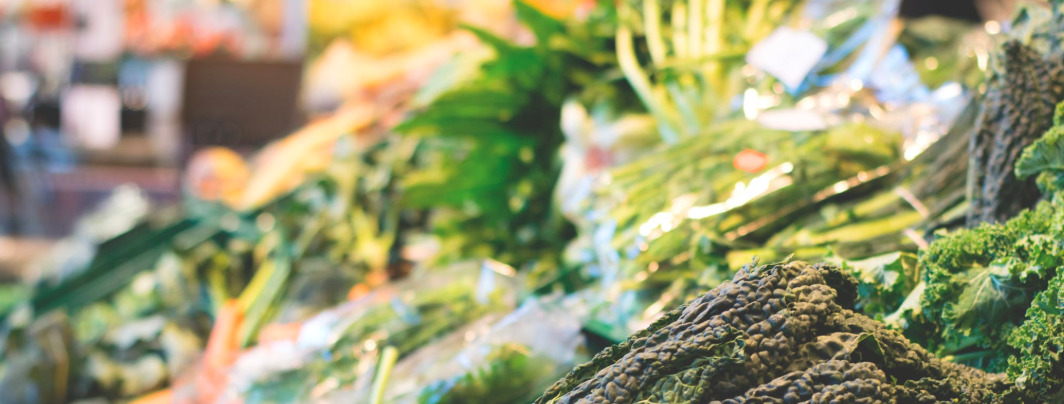Ulcerative Colitis inflammation and how to prevent it
Inflammation is one of those hot topic terms for diet and health. One of those words that gets thrown around all the time by health professionals, commercials, and wellness products. You know you should be avoiding it, and perhaps you know that there are foods and behaviors that help reduce it, but what is inflammation, why does it happen, and how is it related to ulcerative colitis?
Ulcerative colitis is a disease that affects the large intestine or colon. It is defined by the irritation and swelling caused by inflammation. In fact, it’s considered to be an inflammatory bowel disease. Unfortunately, there’s currently no cure for ulcerative colitis, but the right treatments and lifestyle behaviors can help you feel like you have a handle of the condition. Reducing or preventing inflammation is a major step in improving the symptoms and suffering associated with ulcerative colitis.
What causes inflammation?
Put simply, inflammation is the way your body reacts to injury or infection. Your body has its own military equipped with white blood cells and other helpful chemicals. You can consider them your “healthy troops”. When there is a threat, your body sends these helpful soldiers to visit the site of invasion and defend you.
The threat is typically caused by a foreign organisms such as a virus, bacteria, or from injury. Think about that time you embarrassingly fell and scraped your knee. Do you remember the redness, swelling, and heat, and sensitivity? These are aftereffects of your body trying to defend you and get the healing troops to their line of duty. This reaction is acute inflammation, since it happens within minutes or hours after the incident.
Chronic inflammation happens when your body makes continual attempts to repair and contain a source of injury or infection over an extended period of time. This can last weeks, up to months. It can follow acute inflammation (such as that knee scrape) or be caused by an autoimmune disorder such as ulcerative colitis.
Ulcerative colitis inflammation
In autoimmune disorders, your body becomes “too helpful” and your immunity starts to work against itself or what it needs to heal. So rather than repairing, it ends up being damaging. Too much of a good thing isn’t always a good thing.
If you have ulcerative colitis, your immune system thinks that the cells that line the colon, certain food, and gut bacteria are the invaders. White blood cells and other helpful chemicals that typically defend your body, work against you by mistake, and attack the lining of the colon instead. This leads to inflammation and injury, such as ulcers, perpetuating the problem. So the goal here, becomes to manage the inflammation as best as possible.
Ulcerative colitis dietary irritants
There is no single diet that works for everyone and your condition will most likely change over time. The key is to work with your physician or dietitian to find what plan works best for you and be flexible with it as time goes on. One of the best ways to learn what’s best for you now, is keep track of what you eat and drink and how it makes you feel, also known as a food and mood diary. We recommend using an app like Nori to help you easily connect these dots.
Common ulcerative colitis irritants (aim to limit or avoid these):
- Carbonated drinks
- Dairy (yogurt, milk, cheese)
- Alcohol
- Legumes (beans and lentils)
- Dried fruit and excess fruit
- Foods high in fiber (thorough cooking can help break down irritating fiber)
- Fatty meat
- Nuts and seeds (popcorn included)
- Artificial sweeteners such as sorbitol
- Raw fruits and vegetables
- Spicy foods
Dietary inflammation reducers
To reduce chronic inflammation, identify the cause, replenish with nutrients, and support healing. First, identify the cause and manage the inflammation. If you know that you have a food allergy, such as gluten, that irritates your ulcerative colitis, determine what foods contain it and remove it from your diet. The next step is to replace it with nutrient-rich foods that support digestive healing.
Good nutrition is key to a healthy body, particularly for to healing and promoting a healthy immune system. Two nutrients to highlight for ulcerative colitis are omega-3 and probiotics. Studies have shown that foods that contain omega-3 fatty acids can help ease inflammation in ulcerative colitis sufferers. Healthy bacteria, called probiotics, have been linked to remission of symptoms. In addition, following an overall anti-inflammatory diet can reduce systemic inflammation.
Anti-inflammatory foods:
- Leafy green vegetables: spinach, kale, bok choy, and mustard greens (well cooked to break-down fiber)
- Cruciferous vegetables: cauliflower, broccoli, cabbage and Brussels sprouts (well cooked only since these can cause gas and bloating)
- Fatty fish: wild salmon, mackerel, and tuna
- Berries: fresh strawberries, blueberries, cherries (in moderation and according to your personal tolerance)
- Herbs and tea: garlic powder, ginger, turmeric
- Oils: virgin olive oil, walnut oil, avocado oil
- Tea: white tea, green tea
Lifestyle inflammation reducers
Supporting your overall wellness is essential for healing. Focus on a balanced and anti-inflammatory diet, as well as lifestyle approaches such as rest, stress reduction, and adequate sleep. Long-term use of NSAIDS (Aspirin and Ibuprofen) can lead to long-term stomach issues which is why we encourage an anti-inflammatory diet and lifestyle in addition to your medical treatment. Talk to your physician if this anti-inflammatory approach is appropriate for you.
- Stress management: increasing mindfulness has anti-inflammatory benefits and can help reduce the stress hormone, cortisol
- Physical activity: moderate, regular exercise stimulates anti-inflammatory immune cells and normalizes cortisol levels. Keep in mind that intense exercise can temporarily increase inflammation
- Rest: sleep and rest help your body heal. Some ways to improve sleep is regular exposure to light, set meal times, avoiding caffeine and alcohol in the evening, as well as a good pre-bedtime routine
- Water: water helps flush out toxins related to inflammation. Dehydration is common in ulcerative colitis, particularly during a flare-up
This article has been written by Lisa Booth, registered dietician and nutritionist, and co-founder of Nori Health. Content is based on her professional knowledge, and our collection of 100+ scientific research study papers.


